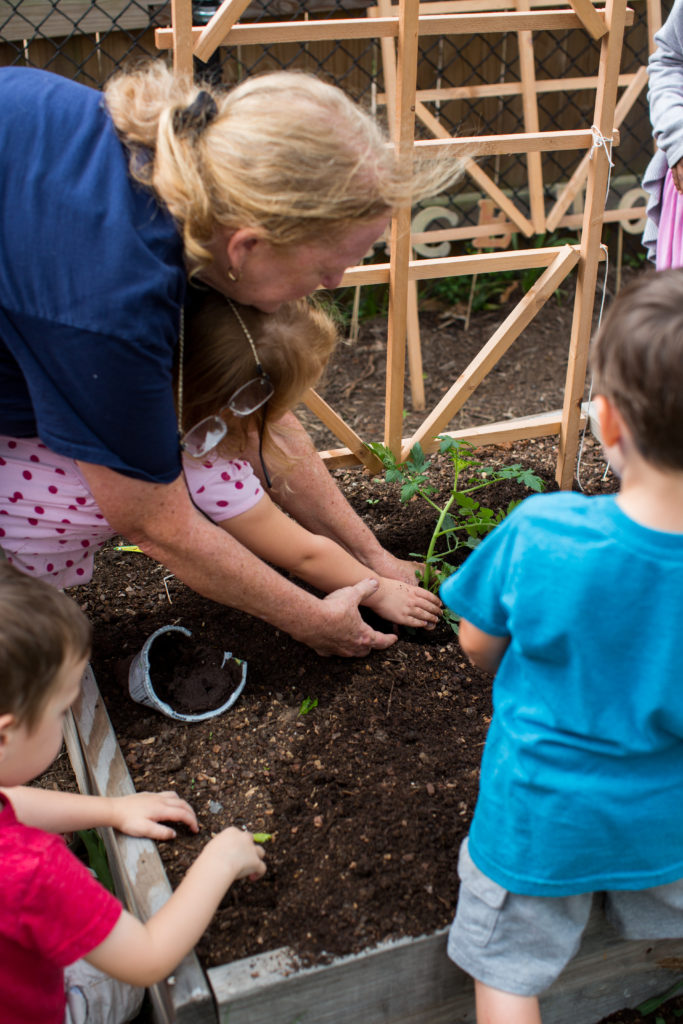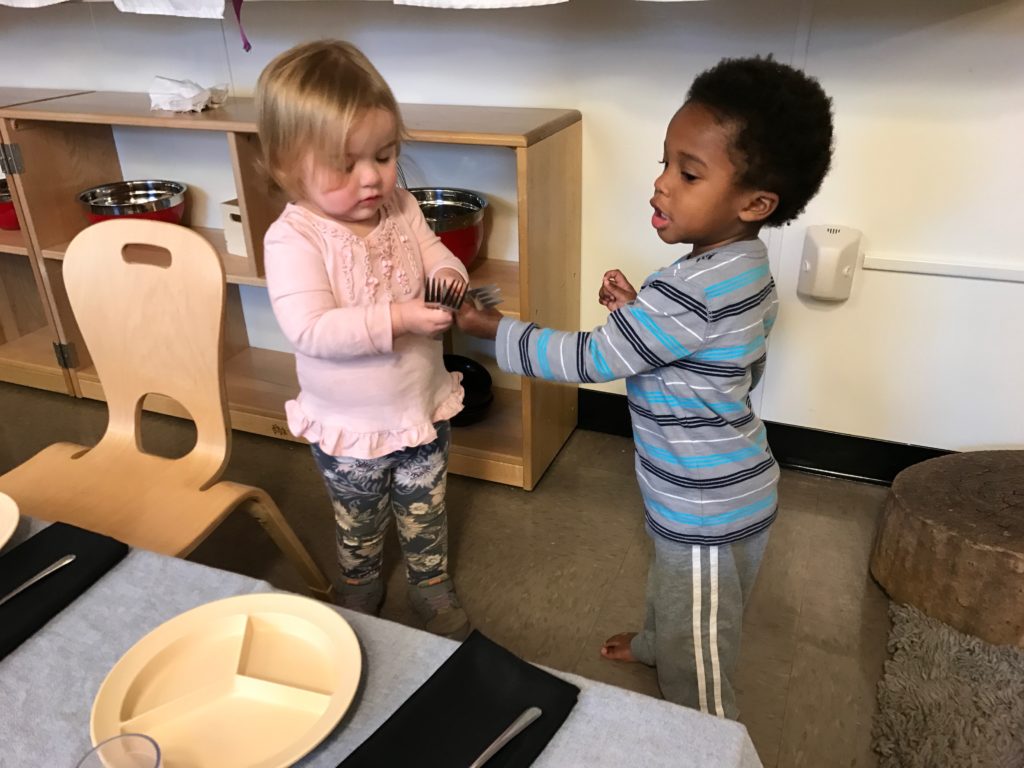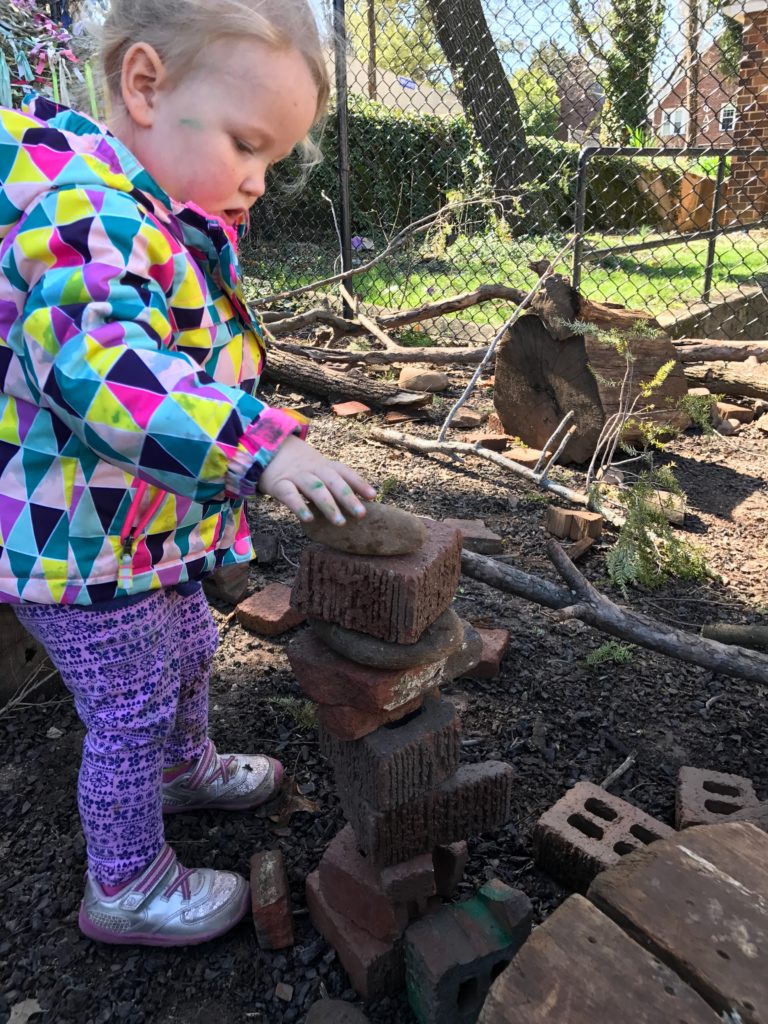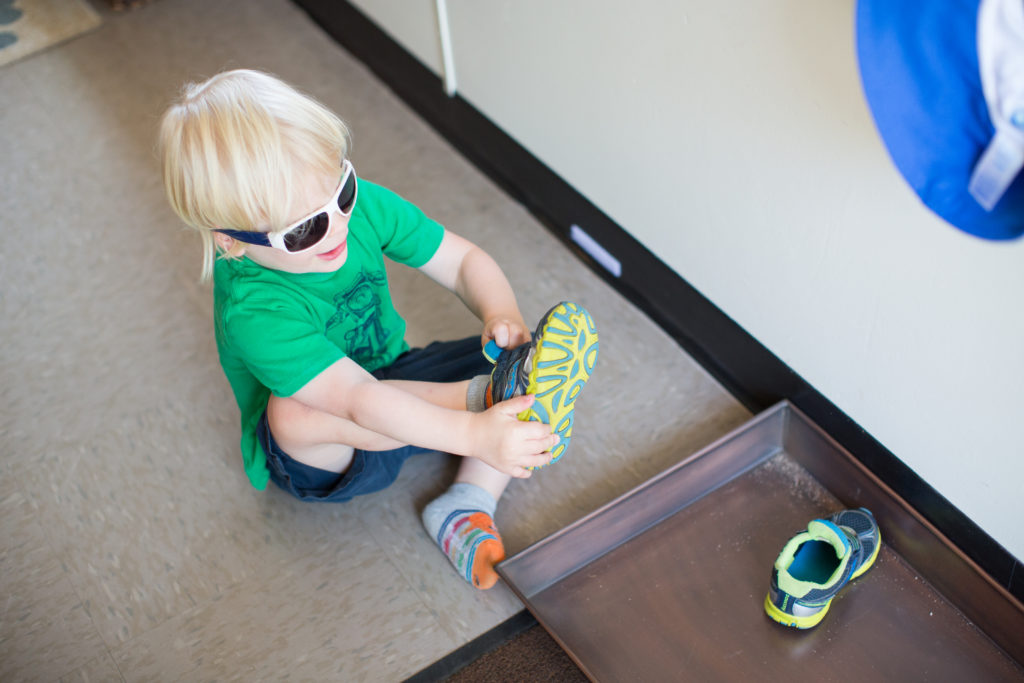This is a guest post by former practicum student Madison Kofoed. The voices our students lend to our learning community are invaluable and we are excited to share Madison’s thought process in coming to understand the complexity of independence and agency in older toddlers.
 It is important to first understand the meanings of both independence and agency. The Merriam-Webster dictionary defines independence as, “not subject to control by others, not requiring or relying on someone else, and not looking to others for one’s opinions or for guidance in conduct.” Agency goes a step further and is defined by Webster’s dictionary as, “the capacity, condition, or state of acting or of exerting power.” In terms of early childhood, we can think about agency as the level of control, autonomy, and power that children have in their daily lives.
It is important to first understand the meanings of both independence and agency. The Merriam-Webster dictionary defines independence as, “not subject to control by others, not requiring or relying on someone else, and not looking to others for one’s opinions or for guidance in conduct.” Agency goes a step further and is defined by Webster’s dictionary as, “the capacity, condition, or state of acting or of exerting power.” In terms of early childhood, we can think about agency as the level of control, autonomy, and power that children have in their daily lives.
When I think of the word independent, my mind often takes me to an extreme definition- living, working, and taking care of one’s self and relying solely on one’s own effort to get by and meet proper survival needs. While this is a form of independence, there is a gradual process of gaining independence. It does not happen quickly and young children should not be expected to function independently all at once. An article published in Early Childhood Australia describes a child’s road to independence as becoming “more able to do things for themselves, to express themselves, and to explore their world independently” (Touhill, L, 2013). This process can include things such as putting on their socks and shoes, getting dressed, using the toilet, and completing simple chores.
Agency? I have recently gained a new understanding of incorporating this word into my daily practice of interacting and learning with children. I once knew it to be making one’s own free choices. However, my eyes have been opened and I have learned how to set aside my personal influence on events and am focused more on recognizing a child’s sense of agency. Their sense of agency is crucial to their development. “Supporting agency involves educators taking a step back and critically reflecting on, ‘Do I need to decide for children?’” (Supporting Agency, 2016).

How can one provide opportunities for children to make decisions on their own and have an impact on their environment? “Consider ways of setting up environments, routines, and learning experiences that support children to make decisions independent of adults.” (Supporting Agency, 2016). Allow the children to think for themselves.
When we are born, we are in our most dependent state of life. Why is it important to move away from dependency? Beyond self-esteem and a sense of achievement, being independent is a key ingredient in learning information and helps one become a competent member of society. Moving away from dependency also allows the child to “develop a sense of themselves as individuals—withtheir own skills, strengths, likes, and dislikes” (Touhill, L, 2013). This is beneficial for teachers as well.
How do these concepts play a role in the classroom and curriculum?

Throughout this semester and getting deeper into project work with the children, I have been careful to leave room for the children to direct lessons I present. One responsibility that we as teachers have to children during the early childhood years is to make sure that we are “providing them with opportunities to develop the confidence to explore their world, to ask questions, to express ideas, to get things right, but also to understand that you can be wrong and learn from mistakes” (Touhill, L, 2013).
Reflecting on our investigation of trains thus far, the children have truly helped to guide my decisions about what provocations to offer next and how to move forward. Through their dramatic play, construction, and peer discussions, their love for trains has been observable on a daily basis. As we have moved through the investigation the children have enjoyed exploring through: construction, images, personal stories, walking trips, and now are moving in the direction of large-scale construction and representing their ideas in ways that more thoroughly support their learning and development. In order to establish ownership for the children during this representation phase, I have met with each child, carefully listened to their ideas, and respected their thoughts to get a list of materials they feel like would be useful in the construction of their train. These intentional decisions in how their ideas are being acknowledged and valued have hopefully begun to help them develop a sense of agency in the curriculum planning.
I have been made humble to the idea that my role as an educator “is to help children develop the decision-making skills needed to make good choices, to help them to recognize the options that are available, and to recognize the responsibilities that come with particular preferences, while being a member of a group” (Touhill, L, 2013). This means that I must give them tools, physical and emotional space, and time to express their ideas and goals rather than getting caught up in my own agenda.

How can these concepts be supported at home?
Sometimes days can be rushed and simply doing things for a young child can be easier. However, this is not supportive of the growth and development of a child.
“Allowing children to make choices for themselves is an important yet relatively easy step towards encouraging independence and agency” (Touhill, L, 2013). If a child shows interest in getting themselves dressed, helping complete chores, cooking in the kitchen, or carrying heavy materials; shutting them down or not allowing them time to learn or act is hindering them. It is both defeating and belittling.
Listening to and acknowledging a child’s questions and interests is a great way of supporting the development of independence and agency at home. Allow children to make choices, have a voice, and engage in real tasks; you’ll be left in awe of how competent and determined young children truly are.